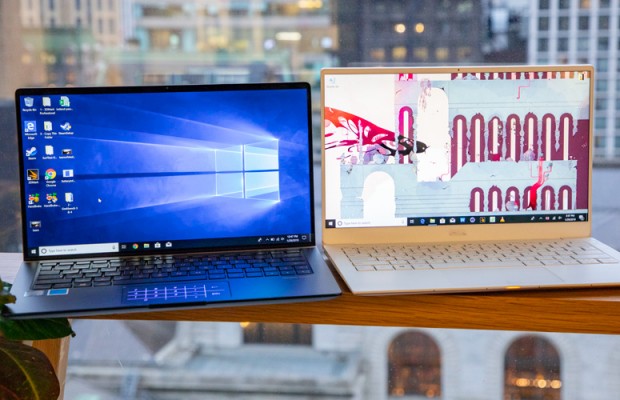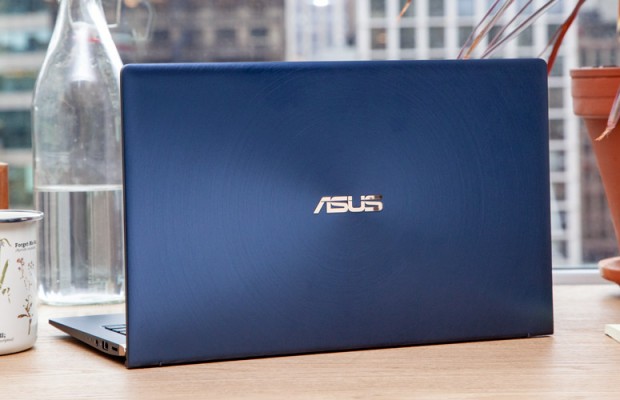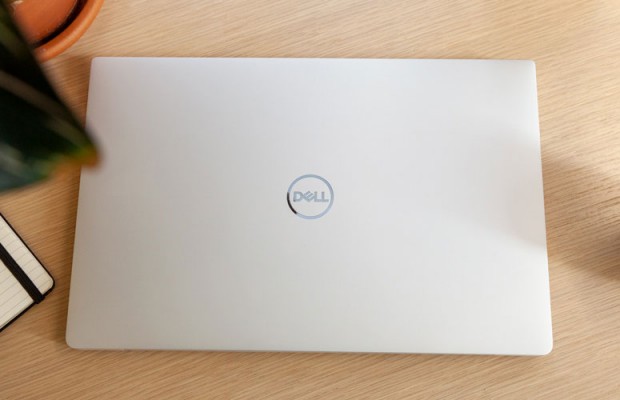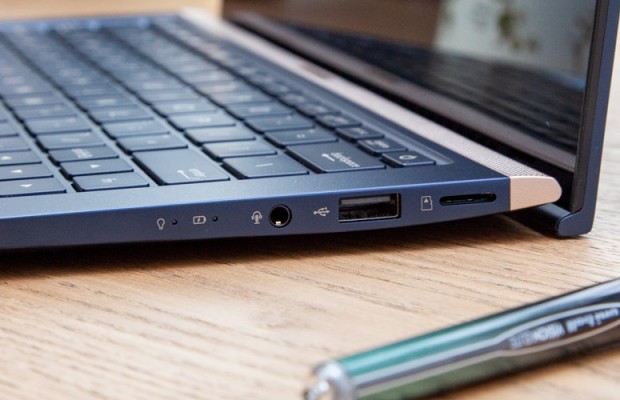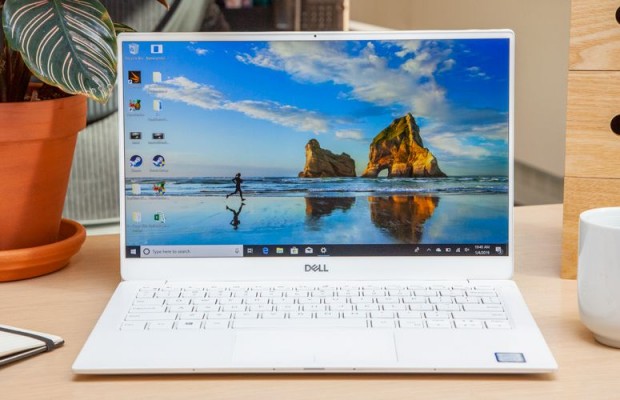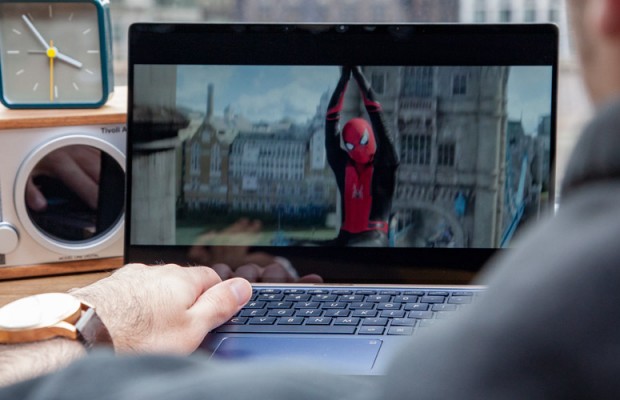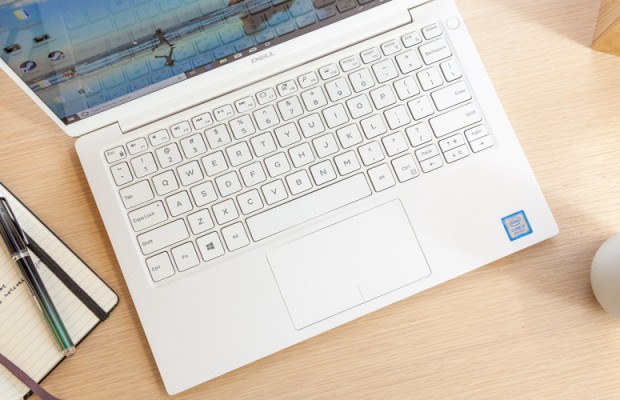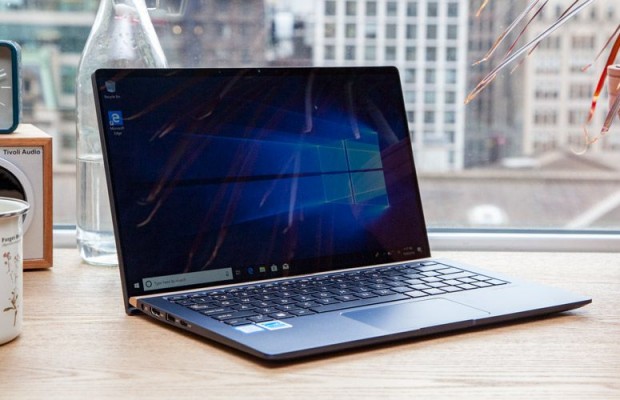Asus ZenBook 13 vs. Dell XPS 13: Which Laptop Should You Buy?
The Asus ZenBook 13 UX333FA ($849) is one of the few premium 13-inch laptops that won't put a hole in your pocket. But how does Asus' affordable stunner stack up against our favorite overall laptop, the Dell XPS 13 ($899; $2,449 as tested)?
It may seem like an uphill battle for the ZenBook, especially when the XPS 13 packs stronger components and features a higher-quality display, but you'll be surprised at how much the ZenBook 13 offers at its low price.
Here's how the two laptops stack up.
ZenBook 13 vs. XPS 13: Specs Compared
| Row 0 - Cell 0 | Asus ZenBook 13 UX333FA | Dell XPS 13 (2019) |
| Starting Price (as configured) | $849 | $899 ($2,249) |
| Display | 13.3 inches, 1920 x 1080 glossy (anti-glare available) | 13.3 inches, 3840 x 2160 touch screen (1920 x 1080 non-touch available) |
| CPU | Core i5-8265U | Core i7-8565U (Core i3 and Core i5 available) |
| RAM | 8GB | 16GB (4GB and 8GB available) |
| Graphics | Intel UHD Graphics 620 (GeForce MX150 GPU available) | Intel UHD Graphics 620 |
| SSD | 256GB SSD (128GB, 512GB and 1TB available) | 1TB SSD (128GB, 256GB and 512GB available) |
| Ports | One USB 3.1, one USB Type-C, one USB 2.0, HDMI 1.4, microSD, headphone jack | Two Thunderbolt 3, one USB Type-C, microSD, headphone jack |
| Colors | Royal Blue (Icicle Silver available) | Rose Gold (Frost Silver and Arctic White available) |
| Size | 11.89 x 7.44 x 0.67 inches | 11.9 x 7.8 x 0.3-0.46 inches |
| Weight | 2.69 pounds | 2.69 pounds |
Design
The ZenBook 13 and XPS 13 rank among the sexiest 13-inch laptops, due to their premium aluminum chassis.
Sign up to receive The Snapshot, a free special dispatch from Laptop Mag, in your inbox.
The ZenBook 13's lid is lathered in a mesmerizing Royal Blue trimmed with gold, but the chassis does attract fingerprints. Meanwhile, the XPS 13's Rose Gold hood is sleek, compact and soft to the touch — and it doesn't attract fingerprints. Although the ZenBook 13 will come in another color, Icicle Silver, in February, the XPS 13 already offers an additional two colors: Frost Silver and Arctic White.
On the inside, the ZenBook 13 is a clear winner due to the stylish gold band above the keyboard and the slick keyboard font accompanied by strong backlighting. The XPS 13's interior is painted plain white (or black) and wrapped in a glass-fiber weave, but it comes off as slightly more plain than premium. Not to mention that this machine's keyboard backlighting is pretty weak.
These 13-inch laptops weigh exactly the same amount, at 2.69 pounds. The ZenBook 13 measures at 11.89 x 7.44 x 0.67 inches, which is slim, but the XPS 13 offers a thinner body with a slightly longer deck, at 11.9 x 7.8 x 0.3~0.46 inches.
MORE: 10 Biggest Gadget Design Fails - Worst Gadget Designs
Both the ZenBook 13 and XPS 13 are gorgeous machines, and while the ZenBook has a colorful interior, the XPS narrowly beats its rival due to a thinner body and less smudge-prone chassis.
Winner: XPS 13
Ports
The selection of ports on the ZenBook 13 and XPS 13 have their positives and negatives. The ZenBook 13 holds room for one USB 3.1 port, one USB Type-C port, one USB 2.0 port, an HDMI 1.4 port, a microSD card slot and a headphone jack. The XPS 13 features two Thunderbolt 3 ports, one USB Type-C port, a microSD card slot and a headphone jack.
While the ZenBook 13 doesn't have Thunderbolt 3 ports, it does have Type-A ports, an HDMI port and USB Type-C ports. Meanwhile, you'll need a dongle or USB-C dock to connect most devices to the XPS 13. This makes the ZenBook more versatile on its own.
Winner: ZenBook 13
Display
The ZenBook 13 and XPS 13 both rock 13.3-inch panels. But the XPS 13 we tested has a higher resolution, at 3840 x 2160, and comes touch-enabled, while the ZenBook 13 has a glossy, 1080p, nontouch display. The ZenBook comes with an optional anti-glare panel, and the XPS actually starts with a 1080p nontouch screen, but we haven't tested that configuration.
When Spider-Man flew straight through a storm in the trailer for Far from Home, the hero’s red suit and the surrounding, orangish explosions looked equally bold on the two panels. However, the XPS 13's panel highlighted the corners of the scene, creating a more uniform picture, while the ZenBook 13's was darker and suffered from more glare. Additionally, the stitching in Spider-Man's suit was far more refined on the XPS 13, though that can partly be attributed to our review unit's higher, 4K resolution.
The ZenBook 13 and XPS 13 were just a hair apart on our colorimeter, covering 115 and 119 percent of the sRGB color gamut, respectively. However, the XPS 13 blasted our light meter with an average of 375 nits of brightness, while the ZenBook 13 emitted a measly 225 nits.
MORE: Laptops with the Best Display Brightness
Both laptops have decent color, but XPS 13's panel is sharper and brighter (which results in less glare). It also comes in touch-enabled and 4K variations.
Winner: XPS 13
Keyboard and Touchpad
The ZenBook 13's keyboard certainly looks stunning, and while it offers a slightly shallow 1.3 millimeters of key travel (we prefer 1.5 to 2mm), the keys are nice and punchy to type on. However, the typing experience was surprisingly uncomfortable, which was due to the short length of the deck and the cramped layout of the keys. Even the right shift key is tiny.
Meanwhile, the XPS 13's keyboard looks a little dull compared to the ZenBook's, and its backlighting is much dimmer. The XPS 13's keys are shallower, at 1mm, but they feel less resistant and snappier than the ZenBook's.
The results from my 10fastfingers.com typing test were more than clear; I typed 58 words per minute on the ZenBook 13 and blazed away at 73 wpm on the XPS 13. The keys on the XPS 13 are spaced wider (2.2mm vs. the ZenBook's 1.9mm), and the XPS 13's keyboard deck offered slightly more space to rest my palms.
The ZenBook 13's touchpad is on the small side, at 3.9 x 2.1 inches, but it features a digital numpad built in. The XPS 13's touchpad offers a roomy 4.1 x 2.3 inches, which provided enough space for my finger to stay within the designated area.
MORE: The Laptops with the Best Keyboards
Overall, the ZenBook 13's keyboard looks nicer, but the XPS 13's is far more comfortable.
Winner: XPS 13
Performance
To no surprise, our XPS 13's Intel Core i7-8565U processor pulled ahead of the ZenBook 13's Core i5-8265U CPU, but the ZenBook 13 didn't go down without a fight.
In fact, the ZenBook 13 came out on top on the Geekbench 4.1 overall-performance test, scoring 15,110 to top the XPS 13's 12,755.
Despite that, the XPS 13 took 1 minute and 10 seconds to match 65,000 names and addresses on our Excel test, outpacing the ZenBook's 1:35.
On the HandBrake benchmark, the XPS 13 transcoded a 4K video to 1080p in 19 minutes and 20 seconds, while the ZenBook 13 lagged behind, at 20:48. However, both machines trumped the 21:51 premium laptop average.
The XPS 13's 1TB SSD copied 4.97GB of data at a rate of 525 megabytes per second, whereas the ZenBook 13's 256GB SSD fell slightly behind, hitting 424 MBps.
On the Dirt 3 benchmark, the XPS 13's Intel UHD 620 GPU ran the racing game at a solid 88 frames per second, while the ZenBook 13 hit only 59 fps, though it has the same GPU.
Winner: XPS 13
Battery Life
The ZenBook 13 survived for a very impressive 11 hours and 28 minutes on the Laptop Mag battery test, which involves continuously surfing the web over Wi-Fi at 150 nits of brightness. Meanwhile, the XPS 13's awesome 4K display did the laptop no favors, as the machine lasted only 7 hours and 50 minutes. This is below the 8:30 premium laptop average. If you're looking for more battery life in the XPS 13, we suggest getting the 1080p display.
Winner: ZenBook 13
Value and Configurations
The ZenBook 13 currently has only one configuration, which costs $849 and comes with an Intel Core i5-8265U processor, an Intel UHD 620 GPU, 8GB of RAM, a 256GB SSD, a 1080p display and a black sleeve to put the laptop in. Dell's XPS 13 starts at $899 and comes outfitted with a Core i3-8145U CPU, an Intel UHD 620 GPU, 4GB of RAM, a 128GB SSD and a 1080p panel.
The ZenBook 13 has the XPS 13 beat for sheer value, as an XPS 13 that matches the ZenBook's current configuration would cost $1,209.
However, the XPS 13 is much more configurable. Our review unit cost $2,449 and came armed with an Intel Core i7-8565U CPU, 16GB of RAM, a 1TB SSD, an Intel UHD 620 Graphics GPU and a 4K touch-screen display.
Asus does plan on launching the UX333FN version of the ZenBook 13 sometime in February. That edition will come with options for an Nvidia GeForce MX150 GPU, a 1TB SSD, an anti-glare panel and a new color: Icicle Silver.
While the XPS 13 is currently more configurable, the ZenBook 13 offers better starting specs for the money.
Winner: ZenBook 13
Overall Winner
This was a ridiculously tight race. The ZenBook 13 offers a lot for its price, but the XPS 13 comes out on top due to its better display, comfortable keyboard and stronger performance despite its pricier components.
| Row 0 - Cell 0 | Asus ZenBook 13 UX333FA | Dell XPS 13 (2019) |
| Design (10) | 8 | 9 |
| Ports (10) | 8 | 6 |
| Display (15) | 11 | 14 |
| Keyboard/Touchpad (15) | 11 | 13 |
| Performance (20) | 15 | 18 |
| Battery Life (20) | 19 | 15 |
| Value and Configs (10) | 8 | 7 |
| Overall (100) | 80 | 82 |
If you're on a budget, the ZenBook 13 is a solid alternative that will give you a stylish design, more ports, longer battery life and solid components, all for just $849. However, the keyboard won't be nearly as comfortable as the XPS 13's and the display is dimmer.
Overall, the XPS 13 is still the king of ultraportable laptops in our book.
Credit: Laptop Mag

Rami Tabari is the Reviews Editor for Laptop Mag. He reviews every shape and form of a laptop as well as all sorts of cool tech. You can find him sitting at his desk surrounded by a hoarder's dream of laptops, and when he navigates his way out to civilization, you can catch him watching really bad anime or playing some kind of painfully difficult game. He’s the best at every game and he just doesn’t lose. That’s why you’ll occasionally catch his byline attached to the latest Souls-like challenge.
